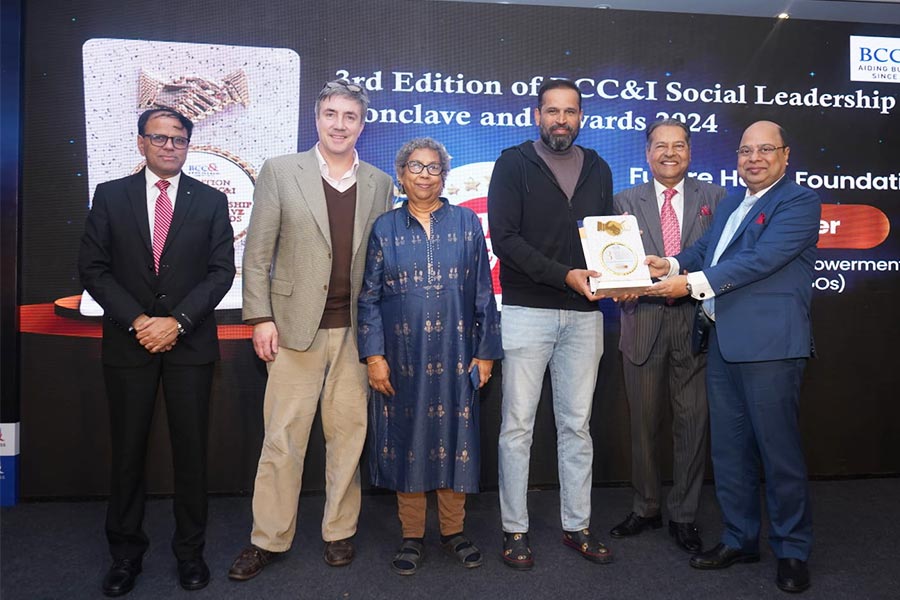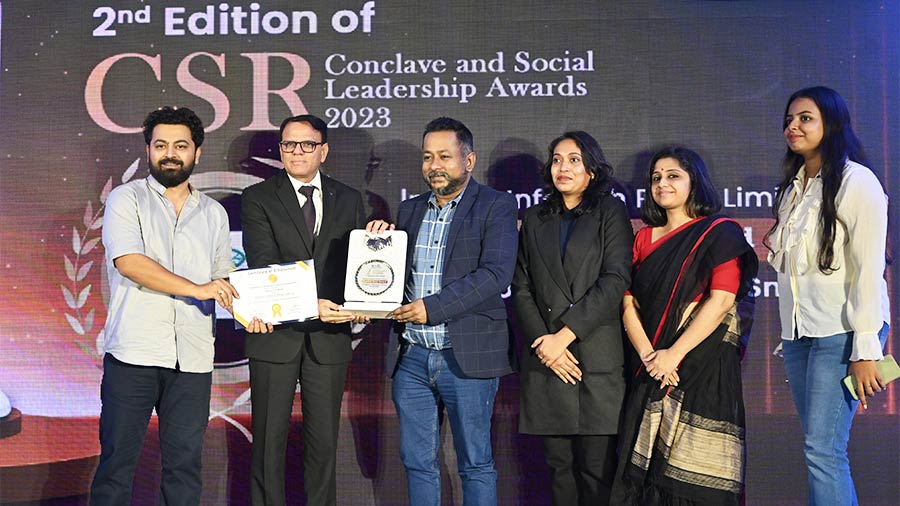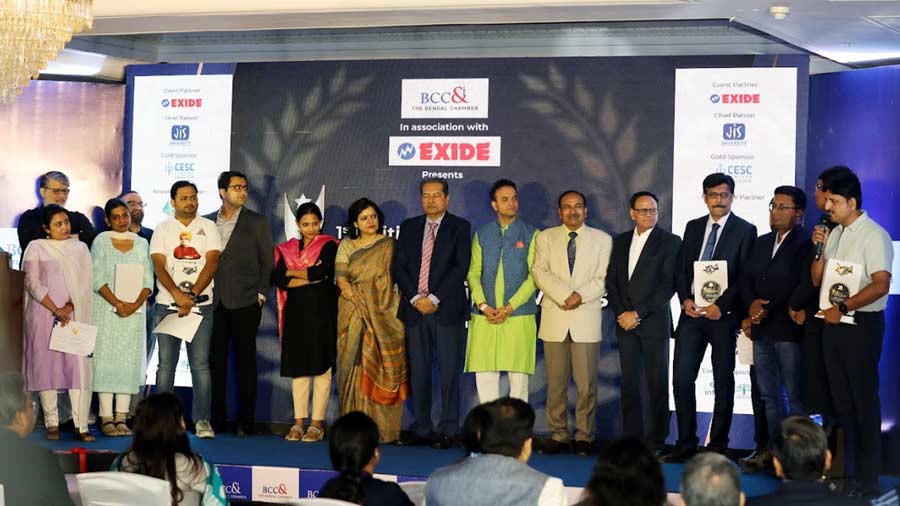On December 6, the Bengal Chamber of Commerce and Industry (BCC&I) hosted the third edition of its flagship programme, the Social Leadership Conclave and Awards, at the India Habitat Centre in Delhi — its first outing outside Kolkata. Dedicated to advancing collaboration and innovation in CSR, the event brought together corporate leaders, policymakers and changemakers from across the country.
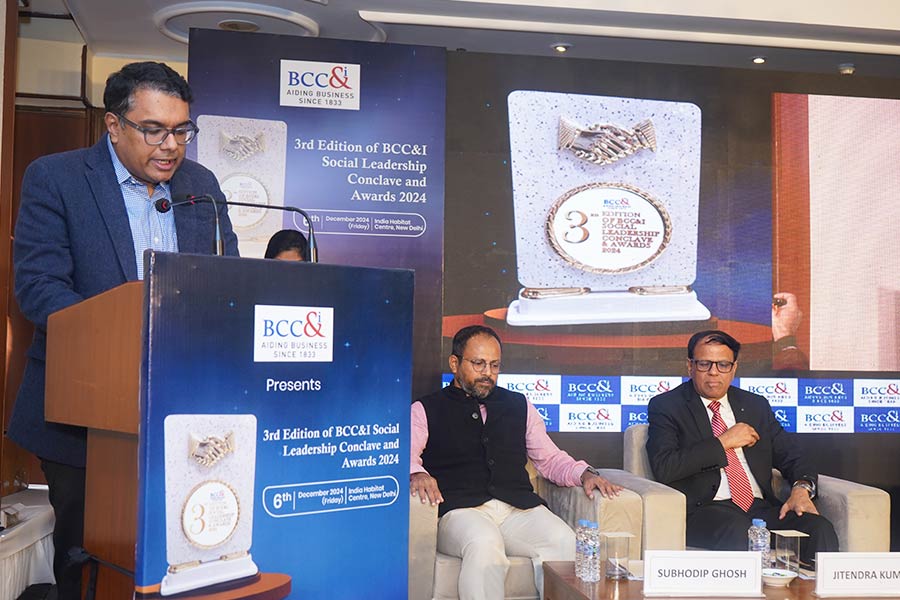
Arnab Basu delivers the keynote address
The day began with a powerful keynote by Arnab Basu, president of the Bengal Chamber, who spotlighted CSR’s transformative potential in modern India. Reflecting on the strides since the CSR Act of 2014, Basu noted its evolution from a compliance measure to a strategic boardroom priority. “CSR has redefined the relationship between corporates and civil society,” he remarked.
Bhaskar Chatterjee, one of India’s leading thought leaders on CSR, traced CSR’s journey and identified four imperatives for its future — innovation, impact, equity and ESG integration. He urged corporate leaders to embed these principles into their strategies to achieve sustainable progress. Citing statistics, he said that “30 per cent of CSR funds are spent in India’s richest states like Maharashtra, Gujarat and Karnataka, while only 0.9 per cent is spent in the Northeastern states of India”.
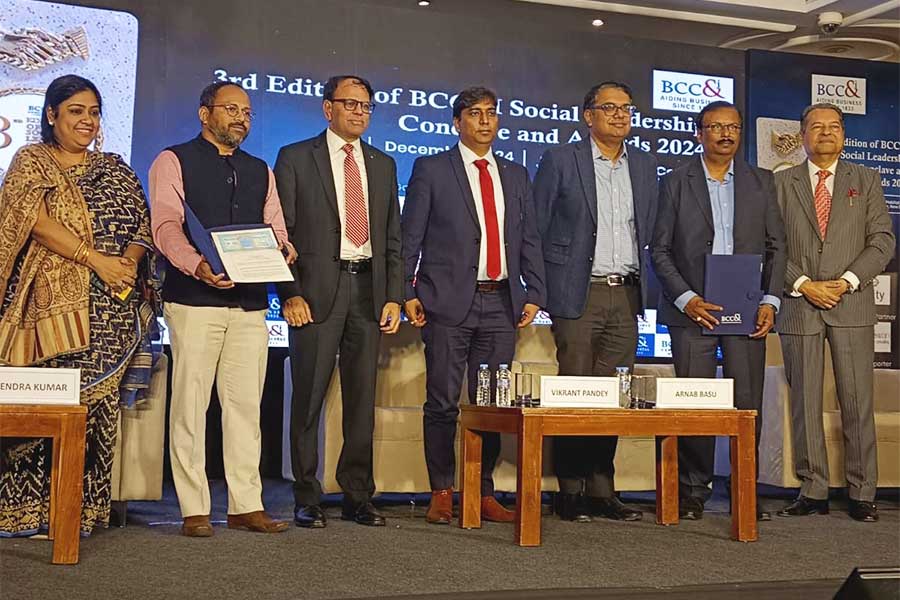
(L-R): Sukanya Bose, Subhodip Ghosh, Jitendra Kumar, Vikrant Paney, Arnab Basu, NK Verma, Bhaskar Chatterjee
Vikrant Pandey, director-cum-joint secretary, Zonal Council Ministry of Home Affairs, Government of India, and Srikanta Panigrahi, director general of the Indian Institute of Sustainable Development, highlighted the global relevance of India’s CSR mandate, advocating for a balance between global standards and local needs. Their call for impactful partnerships set the tone for a significant development — the signing of an MoU between the Bengal Chamber and Damodar Valley Corporation (DVC). This three-year collaboration will guide DVC’s CSR strategy and impact assessment, underscoring the importance of expert-driven frameworks.
Jitendra Kumar, chairperson, corporate governance and CSR committee of The Bengal Chamber, said that CSR is now considered as an integral part of corporate boardroom strategising activity and best minds are allocated for that task.
Technical sessions: A deep dive into CSR
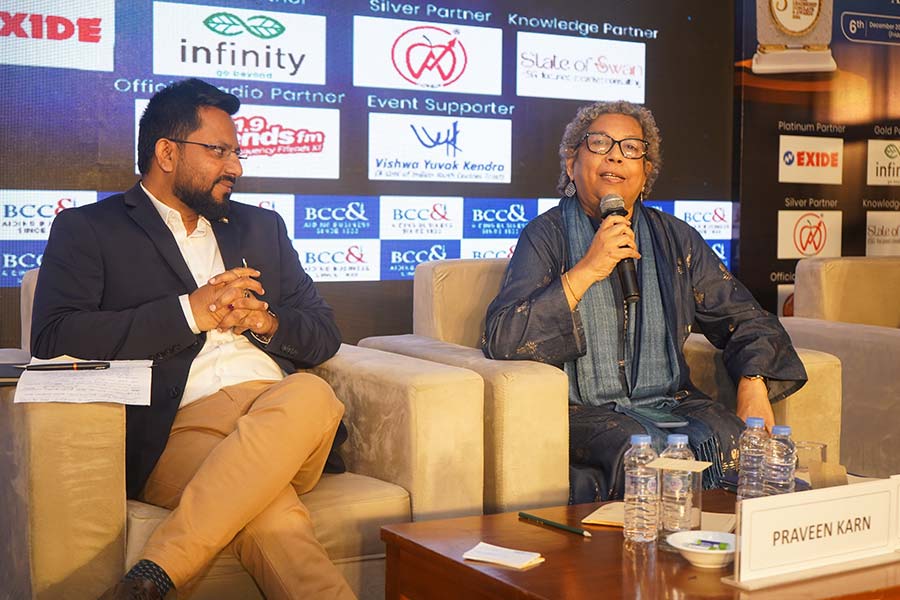
“NGOs are the backbone of impactful CSR,” said Sujata Sen
The conclave featured three technical sessions, each delving into critical aspects of CSR. The first session, moderated by Arnab Basu, centred on the intersection of CSR and climate action. Panellists such as UK Bhattacharya and Srikanta Panigrahi discussed the disproportionate allocation of CSR funds, with 65 per cent funneled into education and health initiatives, even though environmental sustainability takes a backseat. The panel called for a recalibration of priorities, stressing the urgency of addressing climate change through innovative CSR projects.
The second session, moderated by Praveen Karn of the Spark Minda Group, highlighted the indispensable role of NGOs in CSR implementation. Speakers like Sujata Sen, CEO of Future Hope, and Puja Marwaha, CEO of CRY, shared insights into governance challenges and the collaborative potential between corporates and grassroots organisations. “NGOs are the backbone of impactful CSR,” Sen emphasised, underlining the need for strategic partnerships to amplify social outcomes.
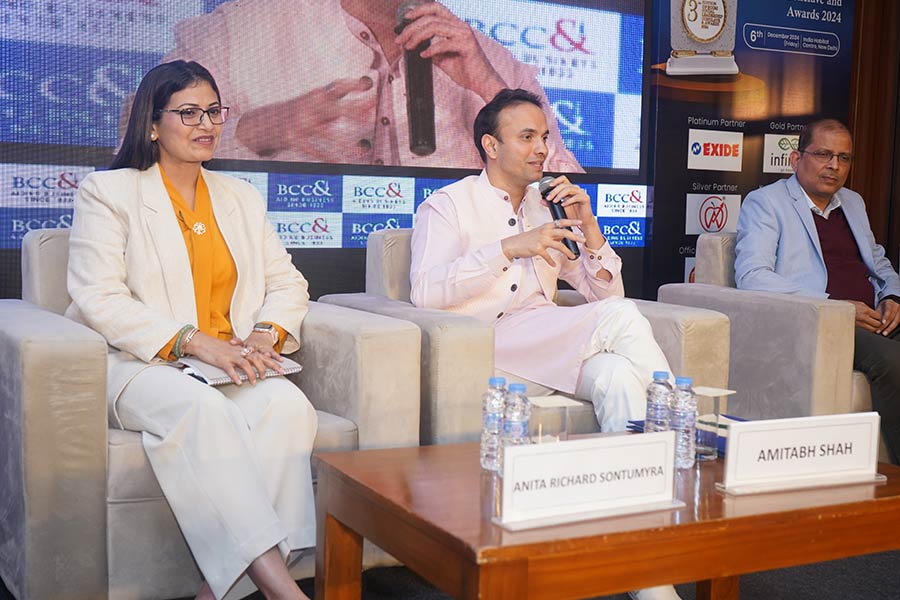
The third panel stressed on the need for data-driven approaches to maximise CSR’s societal impact
The final session, titled “Future of CSR: Transforming India by Sustainable Impact”, offered a forward-looking perspective. Moderated by Amitabh Shah, founder of Yuva Unstoppable, the panel explored emerging trends in CSR, including mental health considerations and the integration of Environmental, Social, and Governance (ESG) criteria. Panellists such as Anita Richard Sontumyra and Kumar Anurag Pratap stressed on the need for data-driven approaches to maximise CSR’s societal impact.
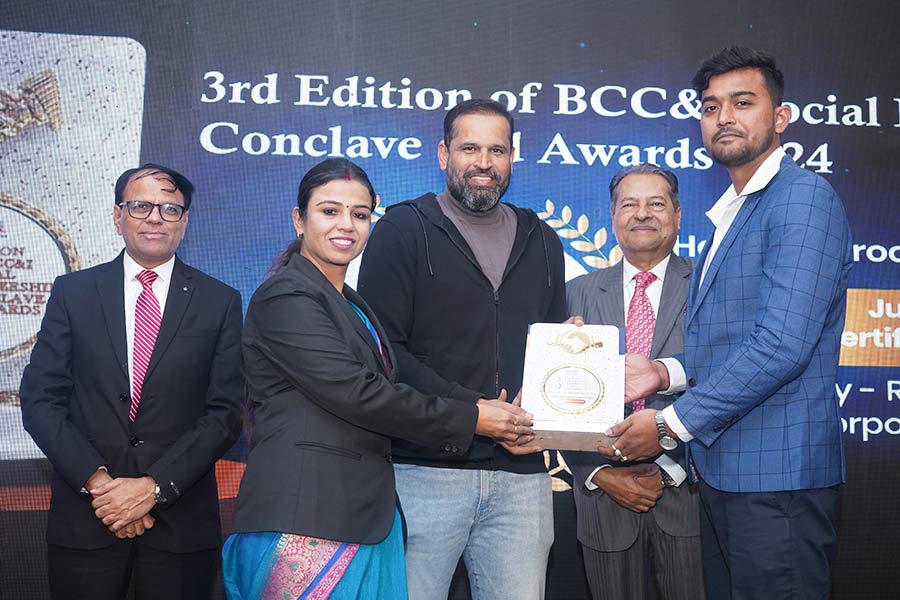
Both NGOs and corporates received recognition for championing social leadership
The programme culminated with the awards ceremony, celebrating exceptional contributions in CSR, with Yusuf Pathan, former cricketer and Member of Parliament, gracing the occasion. Notable winners included Roots Foundation, Future Hope Foundation and Sathya Sai Annapurna Trust for their work in health, education and empowerment. Haldia Petrochemicals, HPCL, and BALCO were among those recognised for their innovative corporate projects, while Amitabh Shah and Kumar Anurag Pratap were named “Changemaker of the Year” and “Leader of the Year”, respectively.
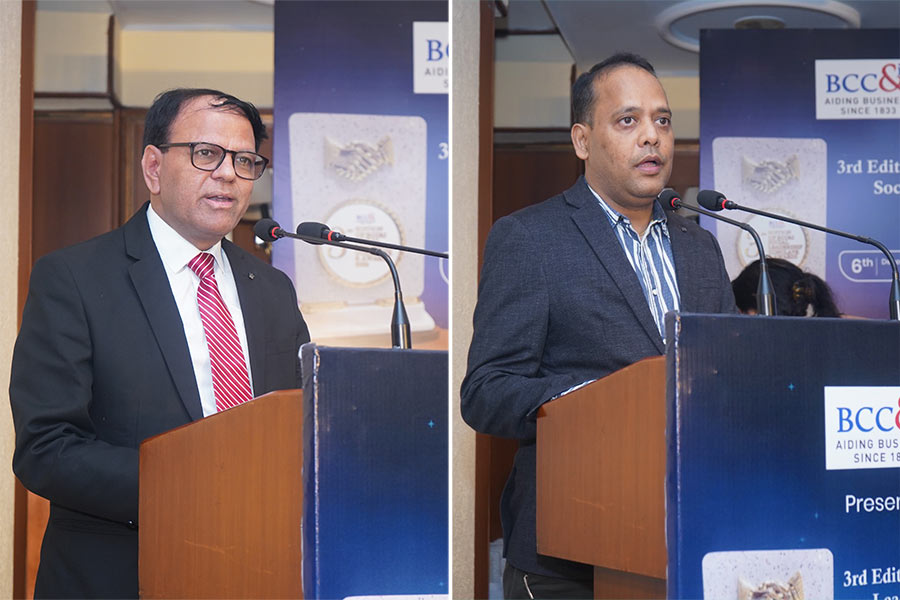
(Left) Jitendra Kumar, chairperson of the national CSR committee for BCC&I; (right) Nishant Sinha, head of CSR, Exide Industries Ltd
By hosting the event in Delhi, the Bengal Chamber demonstrated the nationwide significance of CSR, fostering collaboration across sectors. With a focus on equity, innovation and measurable impact, India’s CSR landscape stands on the brink of the next frontier, with BCC&I continuing to lead by example, driving a culture of accountability and progress.
